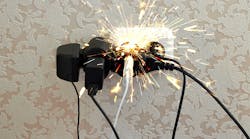Are we spending too much time and space on EVs and zero-emission technology?
This is a question I always ask myself, my staff, my boss, and now you. Our email inboxes fill each week with pitches from public relations reps on new electric vehicles and subject-matter experts about fleet electrifications, regulations, charging infrastructure, and more. It's enough to make you think that any fleet owner can just call up their dealer and easily replace all their internal combustion engine equipment with electric trucks. We all know that isn't possible today—or even tomorrow. Electrification can take years of planning.
But with some California Air Resources Board clean fleet regulations taking effect in the New Year, the push for zero-emission transportation technology is becoming less theoretical. But in reality, just hundreds of heavy-duty EVs operate nationwide compared to millions of diesel-powered tractors hauling freight from coast to coast. And the farther your fleet is from California and the several states trying to mimic those trucking regulations, the more theoretical this could be.
Long-haul fleets will likely have to wait for fuel cell technology or other advancements before ditching fossil fuels. Mixed fleets might be closer to adding medium- and light-duty EVs; however, U.S. over-the-road fleets are far from substantial electrification—let alone 50% adoption by 2030.
See also: Why is so much focus on what can't be electrified?
I've been an editor for newspapers and magazines for 20 years. In that time, I've learned that something new can make for exciting news coverage. But the most critical thing in the news world is you, the reader. If we aren't writing for you, who are we serving?
This is why we constantly ask ourselves if we spend too much time on these shiny new fleet tools, such as zero-emission trucks. They are exciting because they are new and different. Do our fleet readers—those not among the mega fleets that can afford to test out the latest, pricey trucking equipment and technologies—care?
One of the best gauges of what our industry cares about is the annual critical industry issues study by the American Transportation Research Institute, unveiled yearly during American Trucking Associations' Management Conference & Exhibition. The annual survey of 4,000 fleet leaders, drivers, and other industry stakeholders gives us all a broad idea of what matters.
Zero-emission vehicles debuted at No. 10 on the 2023 ATRI Critical Issues in the Trucking Industry and ranked No. 7 among fleet leaders.
Cari Baylor, president of family-owned Baylor Trucking, was excited to see ZEVs debut on the ATRI Top 10 this year. "In California, the state that triple-dog dares you to do business with it, there's no easement to the challenges they present to operate in that state," Baylor said during ATRI's October unveiling in Austin. "But the trucking industry as a whole has so much to be proud of with our environmental commitment."
This is an industry about efficiency—long before it became an EV buzzword. Large diesel trucks today are nearly 99% cleaner than a generation ago. But the rising costs of newer diesel equipment and the century-old Federal Excise Tax on fleet equipment are reasons smaller fleets and owner-operators are still running less clean diesel trucks.
We know that will never be enough for some politicians, regulators, and activists. This is why we focus on EV adoption and its challenges: charging infrastructure, procurement, range, and more. Emissions and electrification news might not make readers happy—but we want to inform and educate you on an inevitable future. We want to show you what some FleetOwner 500 fleets are doing on the bleeding edge to help smaller and growing fleets learn and make long-range decisions.
We started an Emissions & Efficiency newsletter early in 2023 that shares FleetOwner content and other news from Endeavor Business Media affiliates on decarbonization, electrification, infrastructure, and even fossil fuel.
There are a lot of challenges ahead for the industry in 2024 and beyond. Understanding those challenges will help us all prepare to run more efficient fleets and more informative industry publications.
I'd love to hear about your fleet concerns going into 2024 and beyond. Drop me a line at [email protected].




